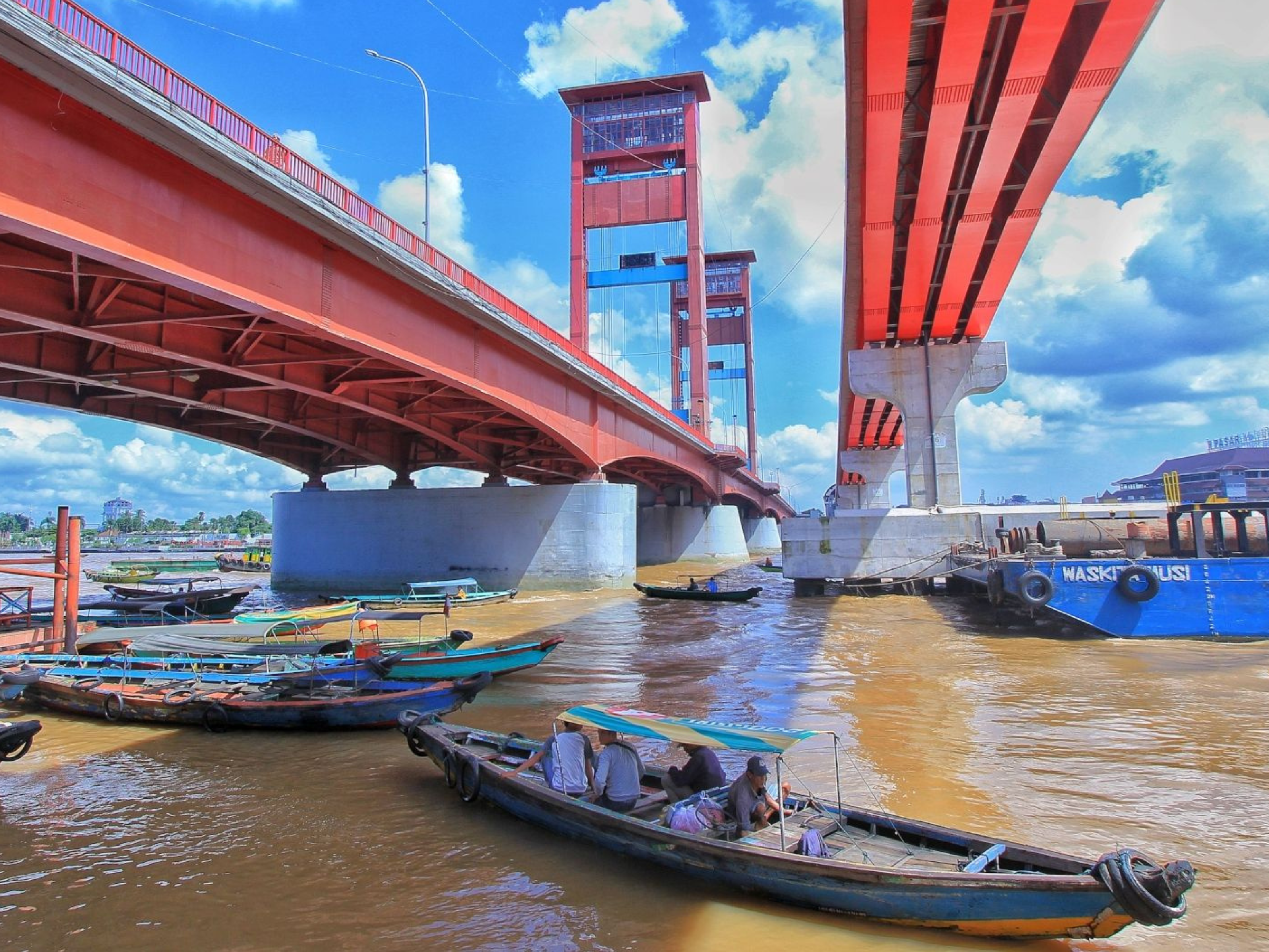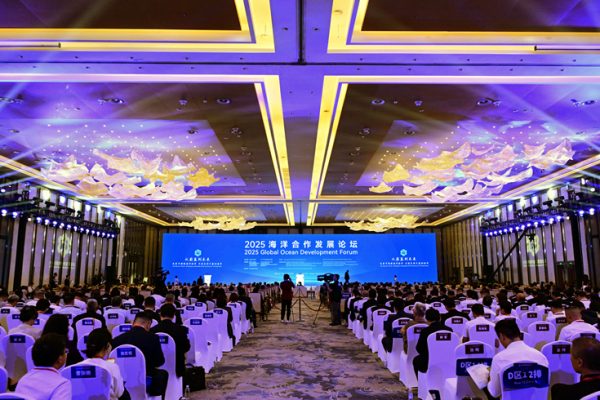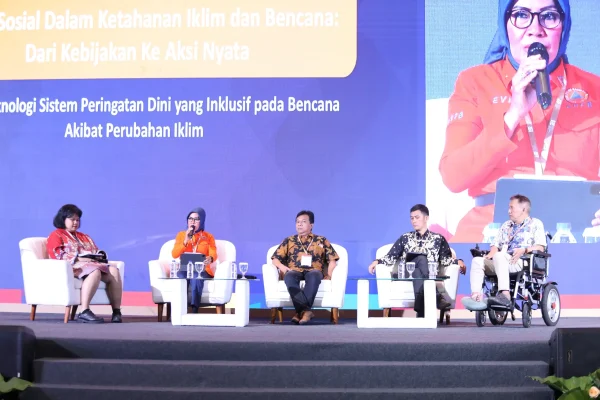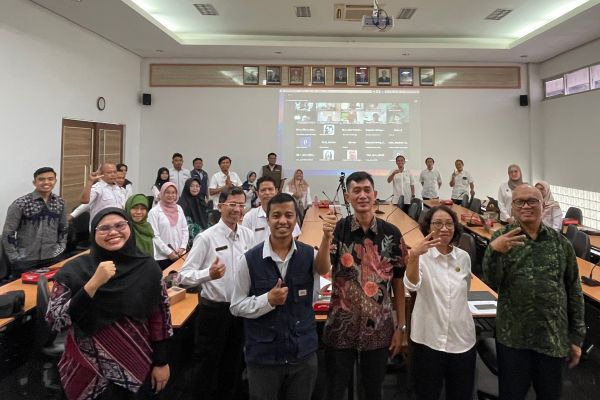The picture shows the Ampera Bridge, an iconic symbol of Palembang. Located in the city center, it connects Seberang Ulu and Seberang Ilir across the Musi River and serves as a key route for daily transportation. Source: palembang.go.id
Palembang City, Indonesia officially became an ICLEI Member in August 2025, joining thousands of cities around the globe committed to sustainability efforts and combating the climate emergency.
As the oldest city in Indonesia with a history spanning over 1,337 years, Palembang has seen rapid urban development, becoming the second-largest city on Sumatra Island. In 2023, the city’s economy grew by 5.12 percent, driven by agro-industry and household consumption.
Home to approximately 1.7-million people, Palembang is located along the 759-kilometer-long Musi River and is surrounded by peatlands, oil palm and rubber plantations, and secondary forests. Waterways are crucial for transportation in the city, offering an affordable, efficient, and fast means of travel with wide accessibility.

Ampera Bridge spans 117 meters over the Musi River, connecting key areas of Palembang and easing daily mobility. Source: Antaranews.com
Palembang’s rapid development and rising emissions bring several challenges, including significant loss of tree cover from agriculture and urban expansion, and annual haze from forest fires that degrade air quality. The city also struggles with limited water access, inadequate wastewater treatment, solid waste management, and transportation pressures due to population growth. Addressing these challenges in the context of the climate emergency requires sustainability to be at the heart of all solutions.
Since 2019, Palembang has been participating in the UrbanShift program as one of its pilot cities, supported by ICLEI Indonesia and implemented in collaboration with the Ministry of National Development Planning (Bappenas).
As part of the program, Palembang is engaging in a series of initiatives aimed at developing integrated spatial planning to strengthen urban climate resilience. Key focus areas include circular economy strategies for waste management, improving energy efficiency in buildings and transportation, implementing nature-based solutions, restoring ecosystems, expanding urban green spaces, and exploring innovative financing models, among others.
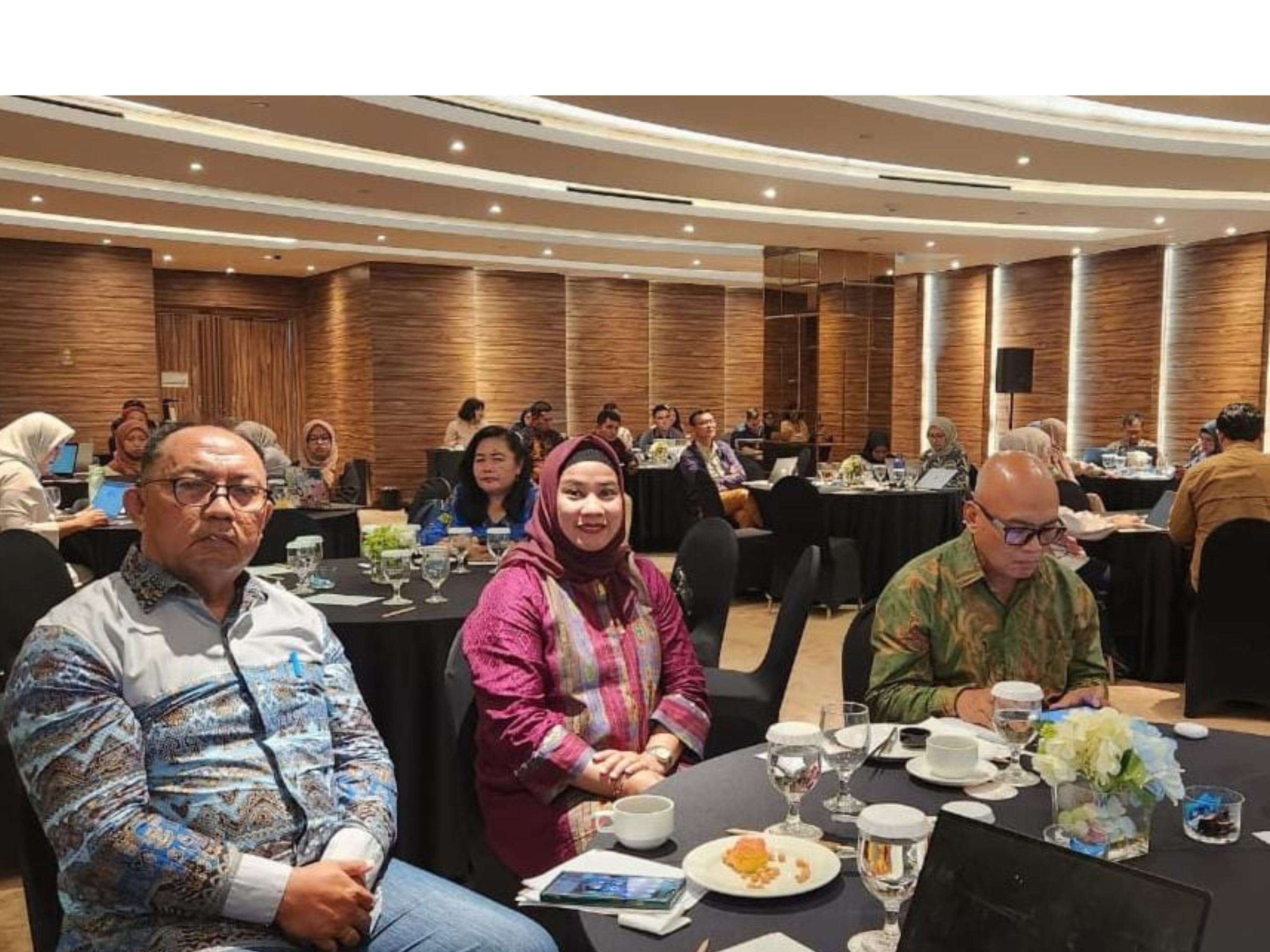
Dr. Korlena, Head of Bappeda Litbang Palembang; Drs. Sifri Mandak, M.Si., MAP, Head of the Regional Development Planning Agency (Bappeda) of Bitung City; and Arif Wibowo from ICLEI Indonesia were seen together during the UrbanShift event held on October 2, 2025 in Jakarta.
At the UrbanShift 2nd National Local Dialogue in Jakarta on October 1-2, 2025, Dr. Korlena, Head of Bappeda Litbang Palembang, participated in discussions and expressed gratitude for the initiative’s support in the city’s development planning and resource expertise.
Palembang City is also part of the TUMI E-Bus Mission City Network, a learning platform for cities in the Global South committed to accelerating the transition to electric bus fleets. Despite deployment challenges, the city is advancing green transport efforts by developing public EV charging stations (SPKLU).
Community-driven solutions to address urban waste
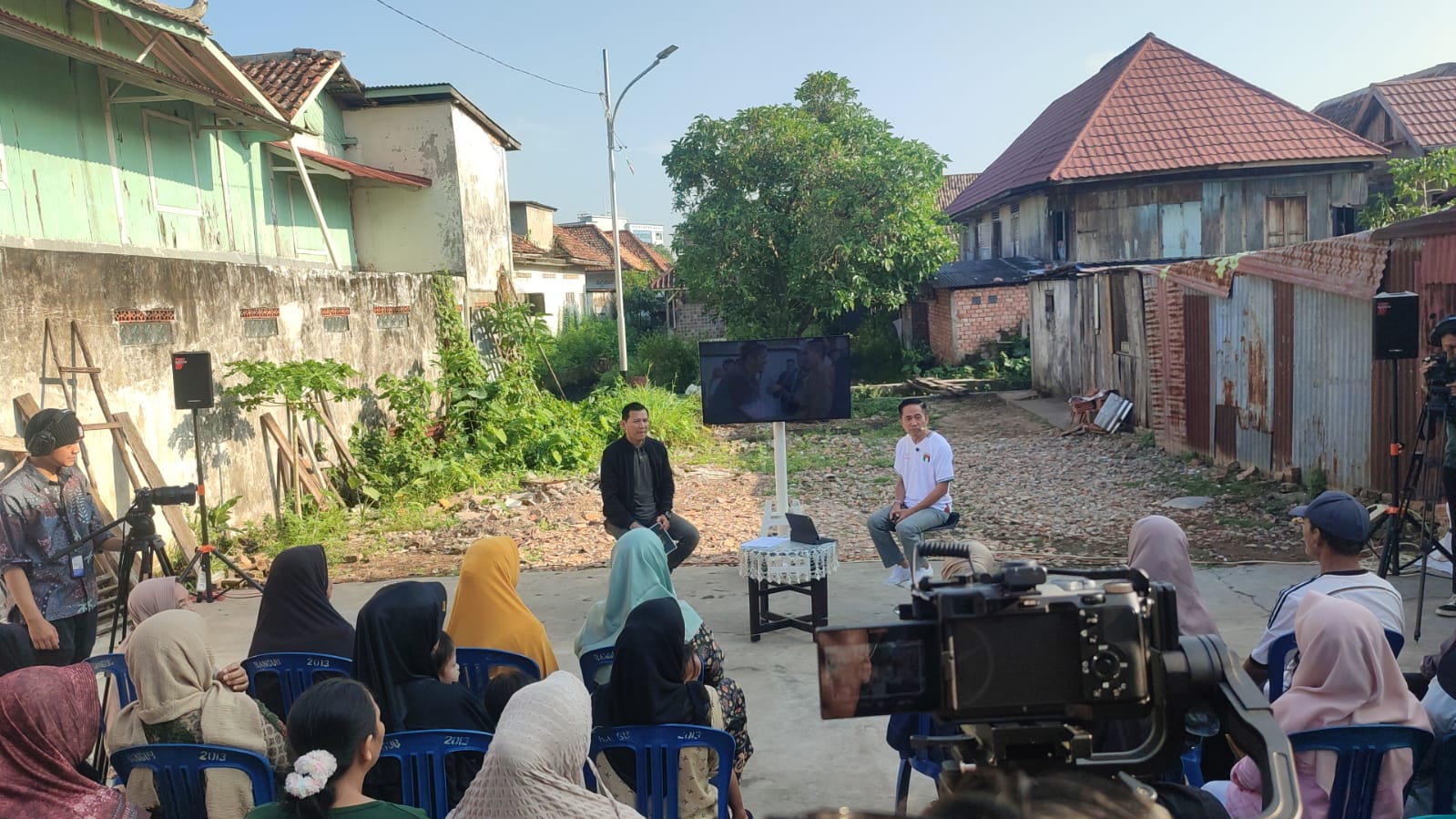
In the picture is the Mayor of Palembang, Drs. H. Ratu Dewa, M.Si, who appeared as a resource speaker on the ‘Palembang Gercep’ podcast held in one of Palembang’s districts on Friday, July 4, 2025. Source: Palembang.go.id
Currently, Palembang is stepping up efforts to tackle its growing waste problem, with daily waste generation reaching 1000–1500 tons- equivalent to 0,4kg per person per day.
In response, Palembang City Mayor Drs. H. Ratu Dewa said they are promoting community-based solutions and greater public participation. “ The community is not just an object but also a subject of change in environmental management,” said the Mayor during a recent Palembang Gercep open-space podcast episode on 7 April 2025.
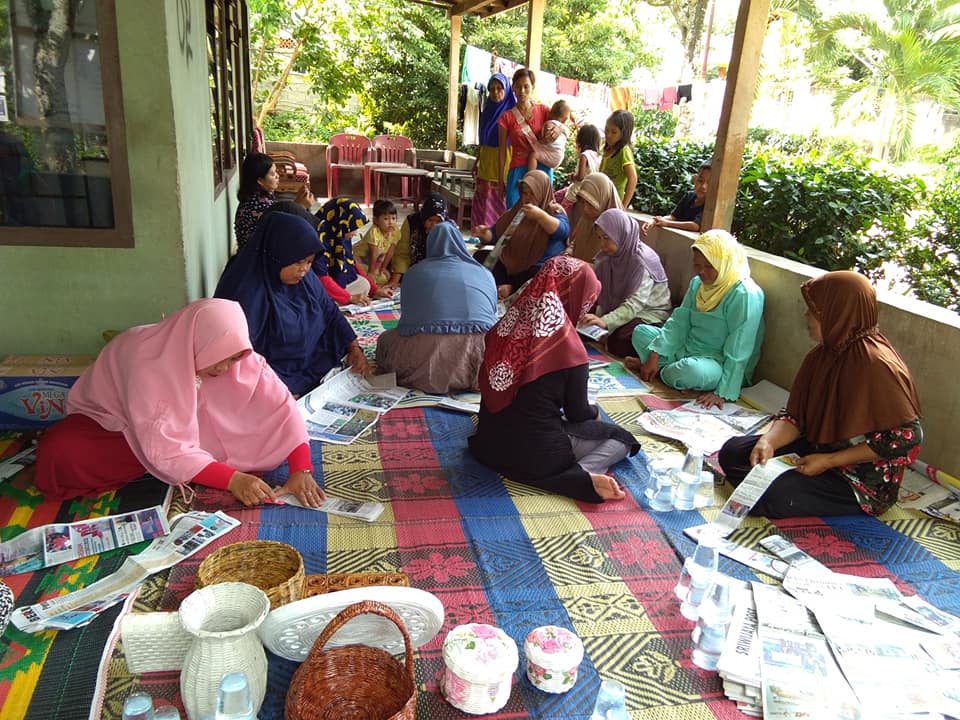
In the picture, the Dua Ilir district community is seen participating in a training session for the Bank Sampah program, supported by PT Pusri Palembang, learning how to transform waste into items with economic value. Source: Palembang.go.id
One of the region flagship’s programs is the waste bank initiative (Bank Sampah), which aims to serve as a hub for education, community empowerment, and micro-economy activities (UMKM) through recycling. The Palembang City Government continues to expand waste banks in every subdistrict, with 37 currently in operation.
As part of its broader effort, Mayoral Regulation No. 39 of 2024 bans plastic use in commercial activities. Among the items to be restricted are plastic bags, straws, pipettes, and styrofoam. The city aims to reduce 10-20% plastic waste in 2025.

